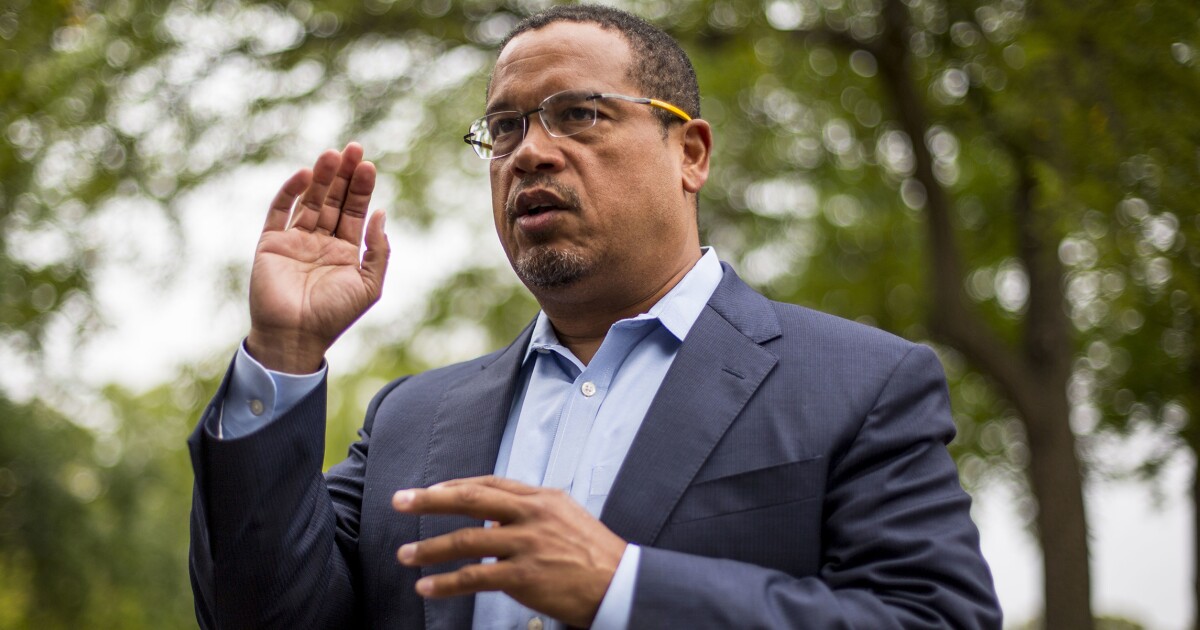

Some Democratic candidates for top law enforcement positions are distancing themselves from the liberal criminal justice rhetoric they championed before crime spiked across the country.
Many candidates and incumbents have de-emphasized the push to reduce incarceration or go after fewer crimes in favor of language that aligns them closer to the public’s current fear about public safety.
Others have attempted to shed the progressive label altogether.
CRIME SCRAMBLES DISTRICT ATTORNEY RACES ACROSS THE COUNTRY
Julie Gunnigle, a Democratic candidate for district attorney in Maricopa County, Arizona, objected last month when an interviewer described her as a progressive.
“I will push back because I have never described myself in that way ever,” she said in September.
When she ran for the same post in 2020, however, “Gunnigle embraced the ‘progressive prosecutor’ mantle in an interview with Phoenix New Times,” the outlet reported at the time.
And Gunnigle, who this week landed the endorsement of singer John Legend, ran in 2020 on some liberal policies she no longer regularly touts on the trail, including advocating an end to cash bail and diverting even some violent offenders serving long prison sentences into treatment programs.
“I have zero patience for those who espouse criminal justice reform but only talk about our low-level nonviolent offenders,” Gunnigle said in one 2020 interview, advocating more programs for those in prison. In another, she said putting even violent criminals in jail isn’t how to bring justice to victims.
”A conviction doesn’t necessarily get you there, whether or not it’s for a so-called violent versus nonviolent offense,” she said at the time. “I think the way to get there is to start conceptualizing it in ways that restore the community rather than just thinking about it in a way that calls for incarceration as a first response.”
Gunnigle has built her second bid for the office around abortion as she seeks to run the country’s third-largest prosecutor’s office against a starkly different political backdrop this time. While she still discusses policies to reduce incarceration rates, her rhetoric, like that of many Democrats holding or seeking law enforcement positions this cycle, has shied away from the most polarizing planks of the liberal criminal justice platform.
Minnesota Attorney General Keith Ellison ran for his post in 2018 as a Democrat focused on enforcing LGBT rights and taking on Trump administration laws that he argued could harm Minnesota voters.
A well-known progressive, Ellison made opposition to the conservative values of his then-opponent a focal point of his liberal platform. He won on a thin margin in a year when Democrats across the country performed well above average.
But Ellison is now embattled in his reelection bid, largely because of the crime problem that has swept his state.
His first campaign ad this fall focused on how his attorney general office has worked with local prosecutors to bring dozens of criminal cases during his tenure.
Ellison’s attempt to play up his focus on crime comes as his GOP opponent, Jim Schulz, hammers him over supporting a ballot initiative that would have eliminated the Minneapolis Police Department after the murder of George Floyd in that city.
Now, Ellison rarely discusses diverting resources away from police departments on the trail.
Mary Moriarty, a candidate for district attorney in Hennepin County, Minnesota, has landed endorsements from the likes of Democratic Rep. Ilhan Omar and has been described as a progressive candidate aligned with the movement that has pushed the most controversial reforms.
But even Moriarty’s rhetoric has struck a tougher-sounding note on crime.
“My job as the next Hennepin County attorney will always be to keep everyone safe. Full stop,” Moriarty began a recent op-ed. “I will focus our resources on prosecuting violent crime, and especially gun violence.”
As the county’s former chief public defender, Moriarty spoke out forcefully against what she described as systemic racism among police and in the criminal justice system, ultimately leading a state board to decline to reappoint her to the position. An investigation into her conduct in 2020 found that her focus on talking about racism had made her a “divisive” leader.
Moriarty speaks now about fully funding police and holding the Minneapolis Police Department accountable for misconduct — but tends to avoid the more provocative language about race and not charging certain kinds of crimes.
Not all law enforcement candidates are abandoning the progressive criminal justice platform; many candidates are continuing to run on promises of ending low-level prosecutions and addressing concerns about racial disparities.
But a movement that felt ascendant before the violence of 2020 has found itself broadly on defense as voters question the wisdom of policies that haven’t broken a rising crime wave.
Voters recalled liberal District Attorney Chesa Boudin in San Francisco this year over public safety fears. Baltimore’s top prosecutor lost her primary to a Democratic candidate who had promised to be tougher on crime. Philadelphia District Attorney Larry Krasner won reelection in 2021 but now faces an impeachment effort led by state lawmakers who accuse him of a failure to address the city’s explosion of violence.
CLICK HERE TO READ MORE FROM THE WASHINGTON EXAMINER
In Essex County, Massachusetts, both Democrats who ran in the district attorney primary this year rejected the progressive label, according to WBUR, despite both proposing reforms.
In Plymouth County, Massachusetts, Rahsaan Hall — endorsed by liberal Sen. Elizabeth Warren (D-MA), among other progressives — has publicly supported a range of progressive criminal justice reforms that involve keeping more people out of prison.
However, Hall has tempered some of those positions; he told Bolts magazine earlier this month that he would not come into office pursuing an end to cash bail because he believes the public isn’t ready to accept such a step.







